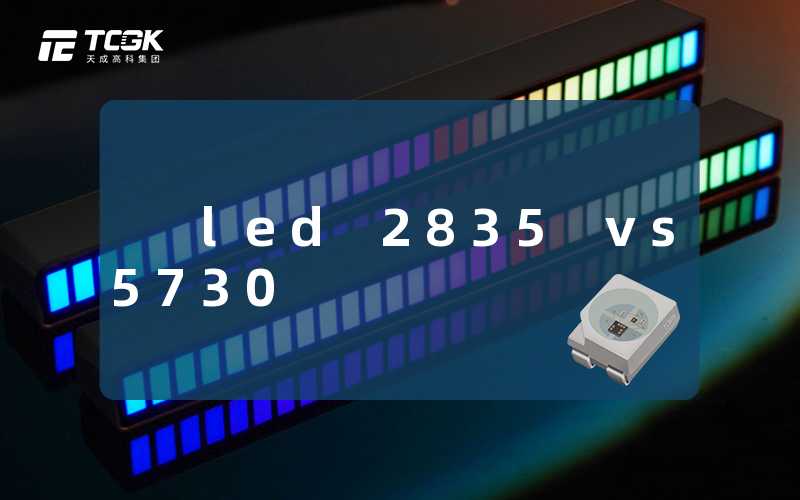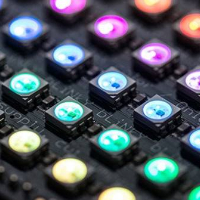SMD LED 2835 vs 5730
Size and Shape

- 2835: 2.8mm x 3.5mm, rectangular
- 5730: 5.7mm x 3.0mm, square
Power and Lumens
- 2835: Typically 0.2-0.5W, 20-70 lumens per LED
- 5730: Typically 0.5-1W, 50-120 lumens per LED
Light Distribution
- 2835: Narrower beam angle (120-140°)
- 5730: Wider beam angle (150-170°)
Color Rendering
- Both 2835 and 5730 can achieve high CRI (Color Rendering Index) values, ensuring accurate color reproduction.
Usages
- 2835 LEDs:
- Decorative lighting, such as rope lights, LED strips, and channel letters
- Backlighting for displays and keyboards
- 5730 LEDs:
- General lighting, such as ceiling lights, floodlights, and street lights
- Commercial lighting, such as retail displays and office lighting
- Automotive lighting, such as brake lights and tail lights
Advantages of 2835 LEDs
- Smaller size for more compact designs
- Higher efficiency with lower power consumption
- Narrower beam angle for spot lighting applications
Advantages of 5730 LEDs
- Higher power output for brighter illumination
- Wider beam angle for more uniform lighting
- Available in wider range of colors and temperatures
Summary
2835 LEDs are ideal for applications where space is limited, such as decorative lighting and backlighting. 5730 LEDs offer higher brightness and a wider beam angle, making them more suitable for general and commercial lighting. The choice between 2835 and 5730 LEDs depends on the specific application requirements.
 TCGK-tcwin
灯珠Q&A
发布时间:2024-03-25 16:05:33
浏览量:487
TCGK-tcwin
灯珠Q&A
发布时间:2024-03-25 16:05:33
浏览量:487 TCGK-tcwin
灯珠Q&A
发布时间:2024-03-25 16:05:33
浏览量:487
TCGK-tcwin
灯珠Q&A
发布时间:2024-03-25 16:05:33
浏览量:487